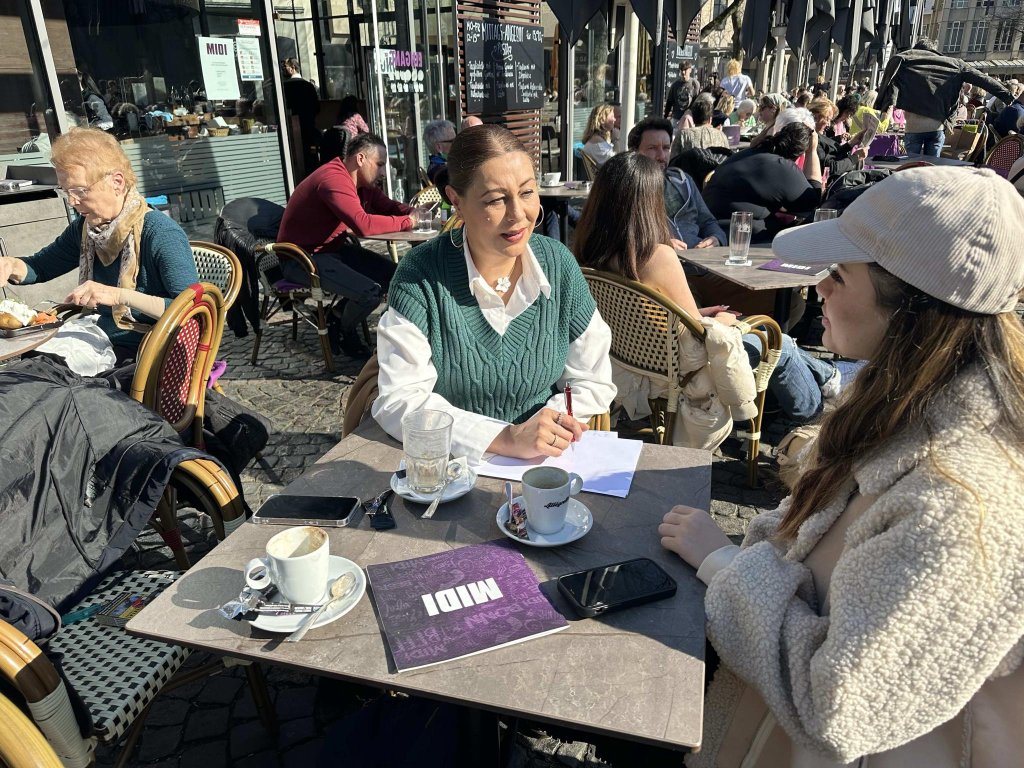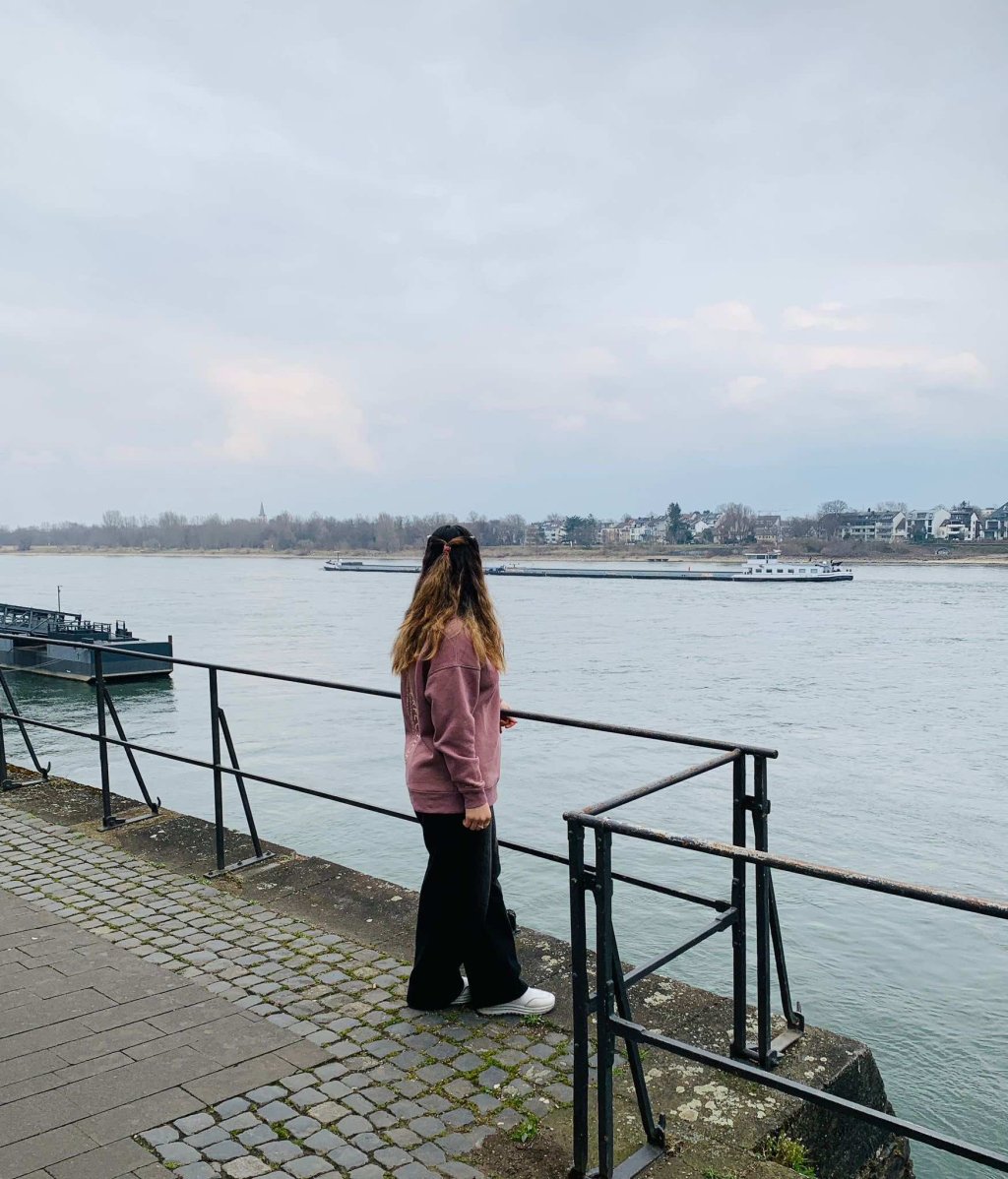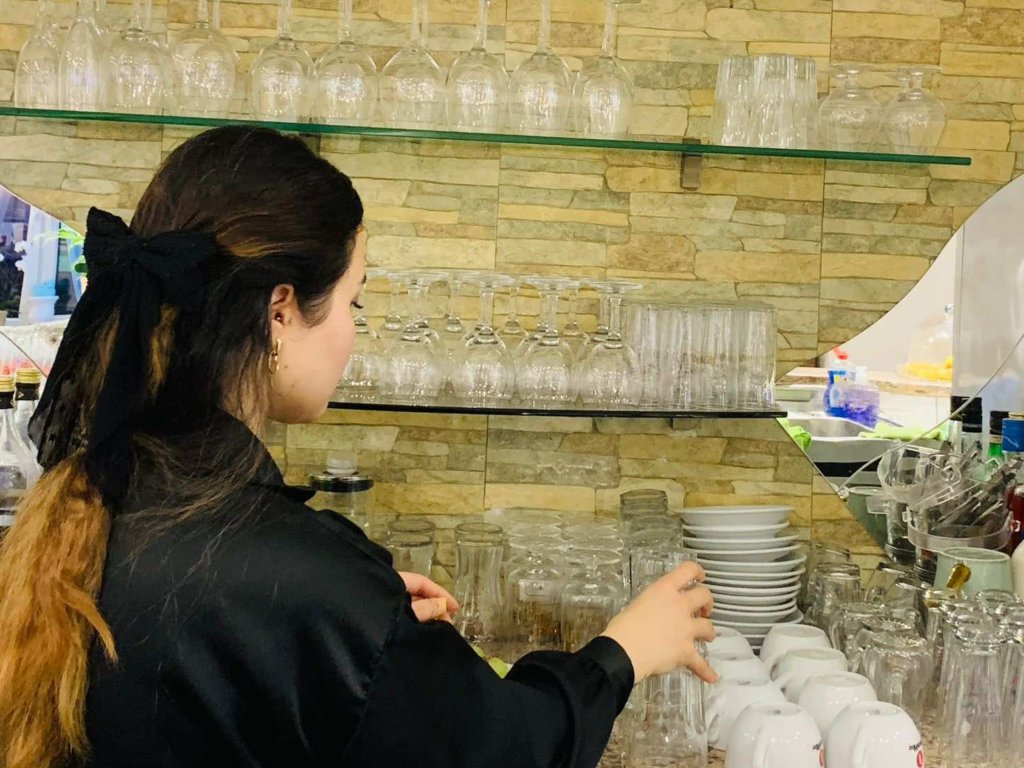Hassinah Rezaei, an Afghan journalist and architect, sought refuge in Germany after Afghanistan fell into the hands of the Taliban. Despite many challenges, she is now building a new life and wants to help other migrant women. Her story reflects resilience, hope and determination -- from integration in a foreign country to an optimistic future.
Hassinah Rezaei, a young Afghan woman, architect and journalist, was helped by the organization "Reporters Without Borders" to come to Germany after the fall of Afghanistan to the Taliban in August 2021.
She grew up in Mazar-i-Sharif, where she learned responsibility from an early age, she explains. She began her career as a journalist while still at school, working with the newspaper Aweja and the radio and television station Arzo in northern Afghanistan. Over time, she took on roles as a reporter, news editor, editor-in-chief, and presenter.
The challenges of journalism in Afghanistan
Hassinah believes that the situation of women in Afghanistan has never been ideal.
She says: "We fought hard for our rights, but we were often judged negatively. But at least we had some security to work."
At the beginning of her professional career, she faced resistance from her family, but once she proved her skills, she earned their trust. In her opinion, women in Afghanistan are more readily accepted if they contribute financially to the family.

Big changes
Living in Mazar-i-Sharif, Hassinah endured the hardships of war and the restrictions imposed on women for security and cultural reasons. She explains: "Our society always had excuses to oppress women --both before and after the republic. In every new political era, the first attacks were against women and girls."
Through her work in the media, Hassinah recognized the political changes earlier than many others. She felt that a big change was coming and that it would happen relatively quickly. Hassinah says "Many people were exhausted by the widespread corruption, nepotism, insecurity, unemployment and poverty. They longed for change -- so much so that some were even willing to accept the Taliban takeover. They believed that the Taliban, as Muslims, would at least bring an end to corruption and insecurity, especially for people in rural areas and the lower classes of society."
But no one had expected the Taliban to enter Kabul without resistance.
Read AlsoNadia, Afghan refugee in France: 'I no longer watch the news from Afghanistan, it makes me too sad'
Leaving Afghanistan: A new beginning
After the fall of the government, the situation for journalists, especially women, became increasingly dangerous. Hassinah and her family received a promise from the organization Reporters Without Borders that they would bring her to Germany. In December 2021, she suddenly received a call instructing her to get to Kabul quickly for a flight to Islamabad. There was no mention of her family, as it was planned they would arrive on later flights.
Hassinah had no chance to say goodbye to her family or friends. She arrived in Kabul at night and flew to Islamabad the next day. Upon her arrival in Islamabad, she was told that her visa would be issued within two weeks, but the process ended up taking over a month.
Leaving Afghanistan was the most bitter day of her life -- a night when she couldn’t hug her loved ones or pack her personal belongings. Hassinah says: "All my years of working, like that of many other Afghans, were lost. I left everything behind, and overnight, everything ended. I couldn’t say goodbye to my loved ones. A feeling of hopelessness and confusion took over, and I was thrown into an unknown future with just a small suitcase and one big question: why?"

Difficult days in a foreign country
After her arrival in Germany, Hassinah found herself in temporary accommodation in a remote area. In the first few weeks, she struggled with deep, crippling depression that drained her emotionally and physically. In a symbolic act of starting over, she even had her beloved long hair -- once a part of her identity -- cut off without hesitation.
She recalls the first day of her language class, when she got lost and wandered unfamiliar streets for two hours, tears streaming down her face. "The first few days in Germany were a nightmare. I was surrounded by darkness that suffocated me, and there was no one to lend a hand," she says, her voice heavy with the memory of that time.
She initially moved to Frankfurt, but there she says she faced bullying and harrassment, including from fellow countrymen. She felt she struggled to find safety and respect among her own people, which was hard to bear. She therefore moved to another state, North Rhine-Westphalia (NRW). Perhaps because it is Germany's most populous state, with a lot of cities and towns, Hassinah felt that people in NRW treat foreign citizens better, which has helped her to feel more comfortable over all in Germany. Today, Hassinah has a small apartment in NRW and has started to rebuild her life from scratch.

Fighting for a better future
In the beginning, Hassinah needed contact with her compatriots, but gradually she learned to solve her problems herself. She is convinced that this independence and her commitment to doing so helped her to learn German faster than many other migrants and integrate into society.
"Despite all the difficulties and the loneliness that tore me apart inside, I tried to start everything afresh and find my place in this society. Otherwise, I knew that time would simply pass and I didn't want to live in 'poverty'," she explains.
Hassinah now has plans to study social work. Although she has a passion for journalism, she knows that it is difficult to work in this field in Germany. She thinks studying social work would allow her to help young women and migrants in particular -- support she desperately needed when she first arrived but found difficult to access.
Read AlsoFemale Afghan reporter among the victims of deadly Cutro shipwreck
Challenges of life in Germany and fears for the future
Despite the freedom Hassinah enjoys in Germany, the longing for her family in Afghanistan remains strong. Her family supports her decisions but continues to live under difficult conditions in her home country. The original plan was for her family to come to Germany as well, but this plan has not yet become a reality.
In addition to attending language and integration programs, Hassinah works two days a week in a restaurant to support herself and send money back to her family.

When asked whether she would ever return to Afghanistan, Hassinah replies: "Under the current conditions, I would never return to Afghanistan. If I can't express my opinion, have no freedom of movement and can't share my thoughts with others, there is no more space to live and no more air to breathe." She is willing to live in a distant country, but not under Taliban rule. Hassinah says: "If I am forced to return to Afghanistan, I would prefer death."
An uncertain but hopeful future
Due to changes in German migration policy and the introduction of new restrictions, there is increasing concern among migrants that they could be deported from the country. Especially in light of recent political developments and stricter asylum laws, many of them feel insecure and wonder whether their efforts to integrate and start a new life in Germany will be worth it, and guarantee them a place to stay.
Hassinah is also worried, but she has not yet lost hope. She says: "If it turns out that my four years of effort and integration have been in vain, it will be very difficult for me to deal with."
However, she emphasizes that she will do everything she can to continue to integrate and find her place in society. Despite the fears and challenges, she remains determined to shape her new future in Germany and not be discouraged by the uncertainties of the asylum system.
Despite everything, she remains hopeful and continues her fight to create a better life. Her migration story has been a difficult but instructive journey that has made her stronger and more determined.
Read AlsoGermany: What does the future hold for migrants after announcement of new grand coalition?
